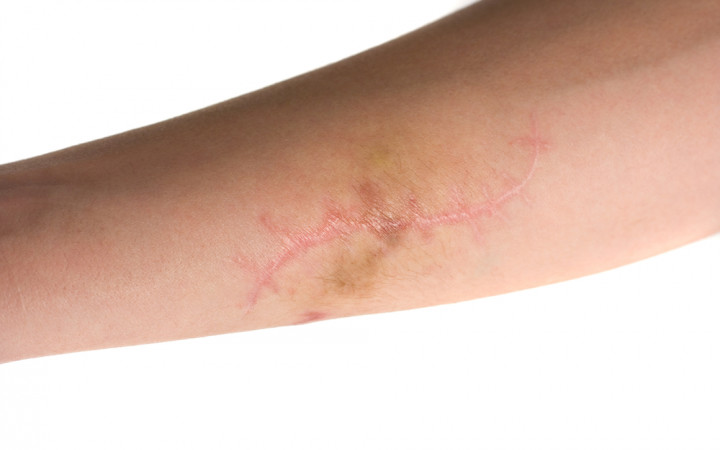If you like to ride your unicycle off-road or practice ollies off the stairs, chances are you may have fallen and gotten a scrape or two over the years. In fact, you might have a few reminders of those past scrapes. Do you have any scars?
If you do, that's OK. Most of us do. Whether it's a cut from an accident or an incision from surgery, you can get scars in a lot of ways.
A scar is just the light pink, brown, or white mark on your skin that shows where a cut, scratch, or sore has healed. Scars show where your skin has successfully healed itself after an injury.
Although some people don't like scars, they can be powerful reminders of important events that you've experienced. If you had a major surgery as a child, you might have a scar that reminds you how fortunate you are to be healthy now.
In ancient days, warriors would show off their scars to prove how bravely they fought in battles. In this way, scars can tell stories that are exciting and heroic!
Although there are many ways to injure your skin, it repairs itself in much the same way regardless of how it gets hurt. When you cut or scratch your skin, tissues get injured.
To repair these broken tissues, your skin makes strong protein fibers called collagen. The collagen fibers act like bridges that reconnect the injured tissues.
While the tissues are healing, your skin forms a temporary crust over the wound to protect it. We call this crust a scab. Over time, the skin underneath the scab heals, and the scab eventually dries up and falls off.
When the scab falls off, you can often see where the skin has healed itself. Sometimes the new skin is slightly different in color. That's a scar!
The easiest way to prevent scars is to avoid accidents in the first place. Of course, accidents happen every day, and we don't plan on them. That's why they're called accidents!
If you do have an accident and you want to avoid having a scar, make sure you treat your skin well while it is healing. How do you do that? Keep your wound covered to avoid infections from bacteria or germs.
Also, don't pick at scabs as they form. Scabs help protect the wound. Picking at them can allow germs and bacteria into the wound. Your doctor may also recommend applying lotions with vitamin C or vitamin E to help the healing process.
If you do end up with a scar, don't worry. While many scars are permanent and will always be visible, some scars fade over time.
In addition, there are many scar treatments available today — from medicated creams to makeup to minor surgeries — that can help get rid of unwanted scars.




